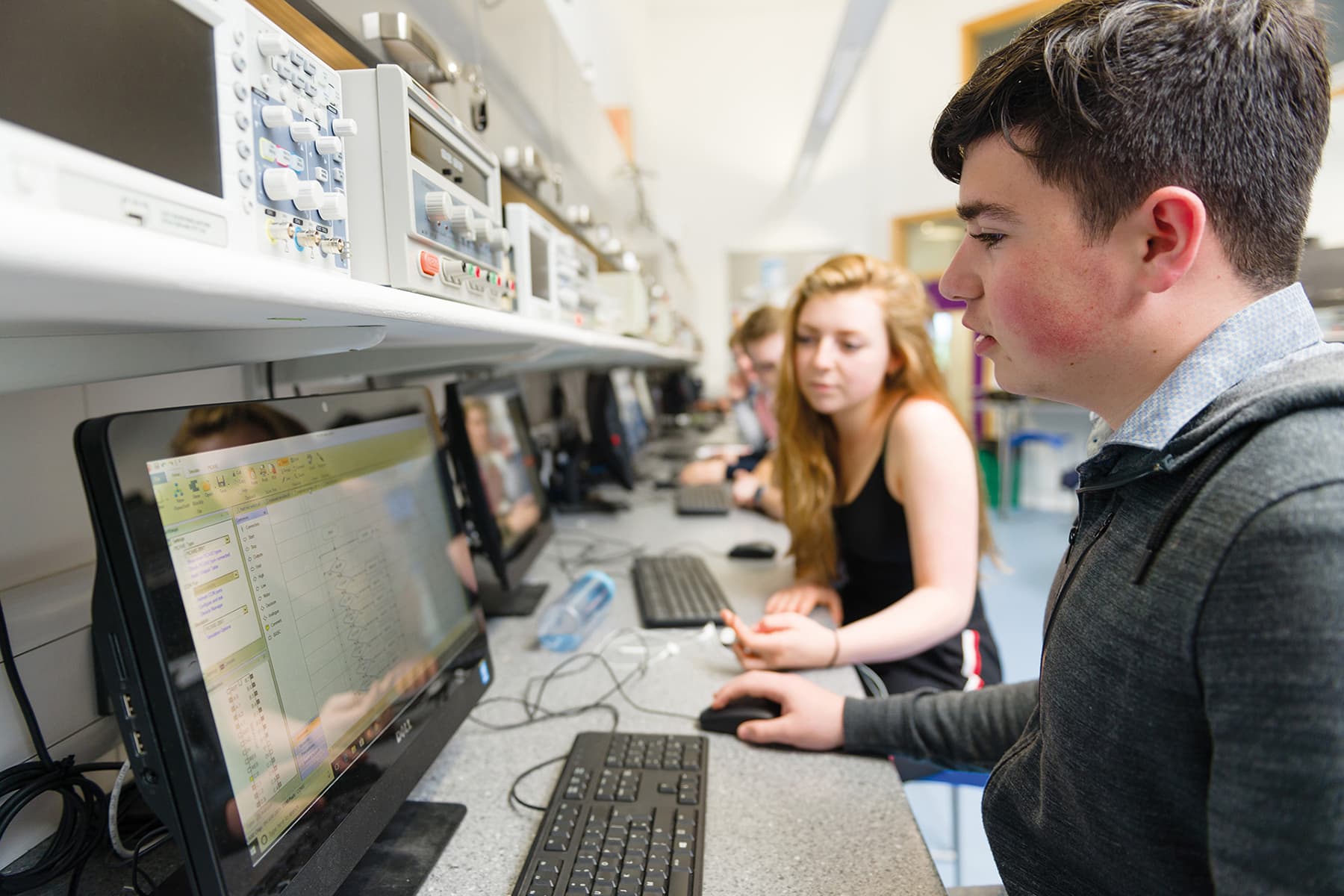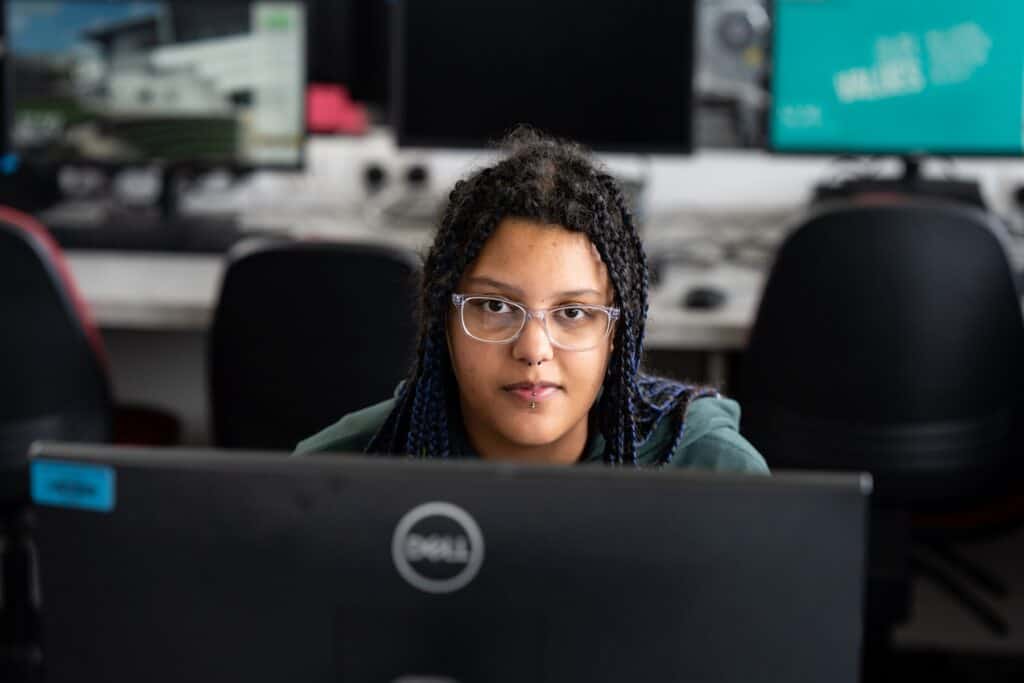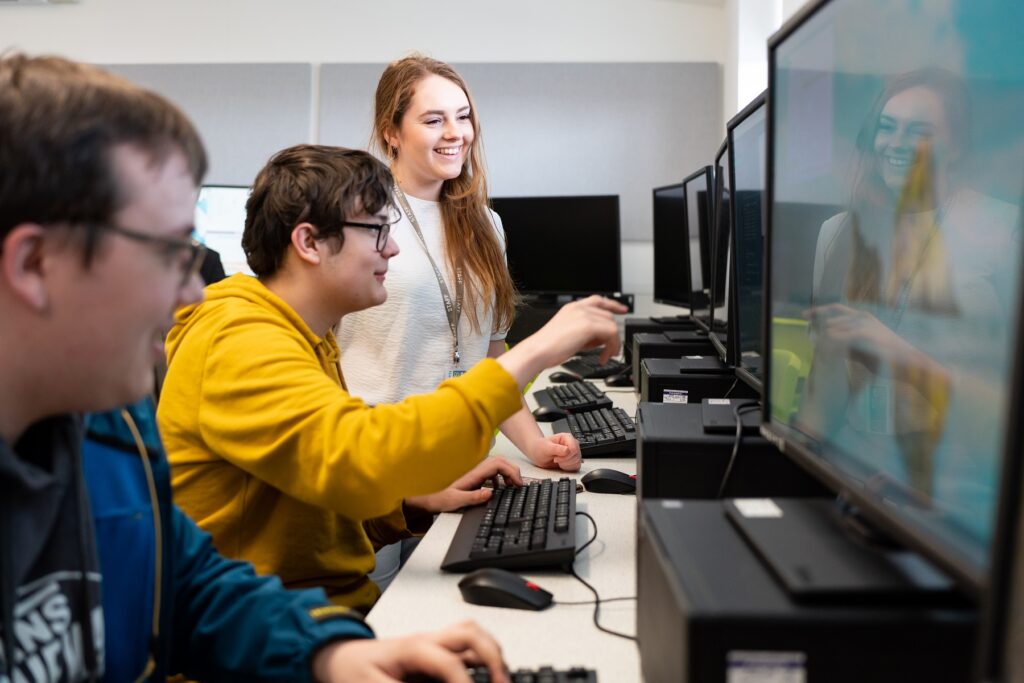New students starting in September: You can find more information about Induction days and submitting your GCSE results in our Start of Year Guide.
WHY CHOOSE THIS COURSE?
The basis of this course is computation, both in theory and practice. Computer Science is an academic subject that requires you to be systematic and logical, and so often lends itself to the more technically minded student. The course will provide you with valuable skills in how we use programming languages and how digital technology is used. The many career possibilities that are available to you with Computer Science include system analysis, computer programming, animation and many more. Previous students now work around the world for companies ranging from Google to local businesses working with robotics and embedded systems.
Apply for this course
Start date: 08/09/2025
TOP COURSE HIGHLIGHTS
Design, prototype and refine
industry standard software
excellent tutor support
industry links
computing academy
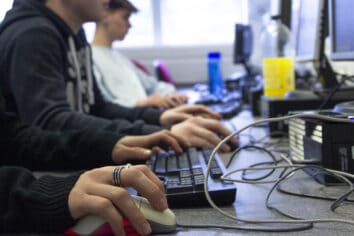
Specialist software
Digital workshops offer all students access to develop skills in industry standard software including Visual Studio, containing .NET languages like Visual Basic and C# and python tools.
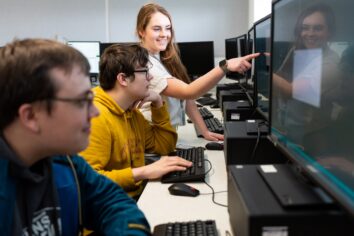
Friendly and experienced staff
Computer Science lecturers are friendly, supportive, experienced in industry and hardworking. Achievement in this subject relies heavily on your attendance, punctuality and commitment to learning.
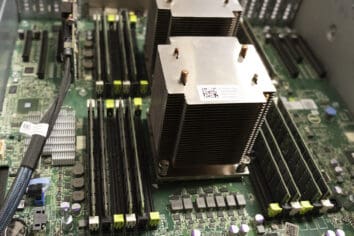
Industry links and progression
Students make the step towards a career in industry by progressing into technology specialisms at university like cybersecurity or artificial intelligence or by working with local technology organisations.
WHAT WILL I LEARN?
You’ll start off by developing practical skills in a range of programming code & languages principally Visual Basic and C#. You will have the opportunity to perform systems analysis, software engineering and program construction. Then you’ll move on to learn how software interacts with hardware, in particular the role of the operating system, data structures and processes and how the principles of hardware impact on software and data communication.
Later, you will discover how different types of software drive the digital economy and the implications of the digital revolution on the rest of society. You will also examine issues with digital security and undertake a major piece of independent coursework on a software problem of your own choice. As computers are now such an integral part of society, people with A Level Computer Science skills are in extremely high demand.
You will study three components:
- Programming and System Development (exam) – 40%
logical operations; data structures; algorithms and programs; principles of programming; systems analysis; software engineering; program construction; practical programming; and economic, moral, legal, ethical and cultural issues.
- Computer Architecture, Data, Communication and Applications (exam) – 40%
Hardware and communication; data transmission; data representation and data types; organisation of data; database systems; the operating system; the need for different types of software systems and their attributes; data security and integrity processes;
- Programmed Solution to a Problem (coursework) – 20%
The aim of coursework is to allow you to investigate, design, prototype, refine the design, implement, test and evaluate your own solution to a substantial software problem chosen by you. It requires you to carry out two different kinds of practical activity conducted over a minimum of 72 guided learning hours: a written report and software development (evidenced in annotated listings and test runs).
WHERE WILL IT TAKE ME?
Computer Science complements many courses, such as Physics, Electronics, Mathematics, Technology-related courses and other sciences. It could lead to a degree course in Computer Science, Networking, Cybersecurity or Robotics. Computer Science can open up employment routes into Engineering, Science or to be a programmer or software engineer.
ASSESSMENT ARRANGEMENTS
Your achievement in this subject is dependent upon excellent attendance, punctuality and effort. You will learn in a friendly atmosphere, using a variety of assessment methods.
You will be assessed regularly on practical work that is conducted either as homework or under timed conditions in class and given feedback on your progress.
You also will be assessed regularly on technology terminology.
Discussions and presentations are a vital part of our assessment process and you will be expected to contribute to those and practical exercises.
You will review your own performance in 1:1 sessions with your tutor.
You will undertake mock examinations on each component in advance of your final exams. You will be formally examined on each component that you study.
The linear examinations are traditional, written, and are sat at the end of the second year, although you will complete an A1 assessment in this subject based on the topics covered in Year 1 to ensure progress.
Coursework in the second year is compulsory.
ENTRY REQUIREMENTS
A Level Computer Science requires a systematic and logical approach to problem-solving. You will require five good grades at GCSE in line with general entry requirements for A Level, including English Language, with Mathematics at least a Grade 6. GCSE IT/Computer Science is not required, but a strong desire to develop skills in programming languages or previous experience is helpful.
INFORMATION & SUPPORT
We encourage all students to read widely and conduct their own research into computer systems and software development, especially those who wish to study Computer Science related courses at degree level. We will offer opportunities for you to conduct independent research and development. Programming development can take place using resources in College. The software that you will use is available as free downloads or through student licence schemes.
Meet the staff, tour the campus and find out about life as a student at one of the best colleges in the country.
